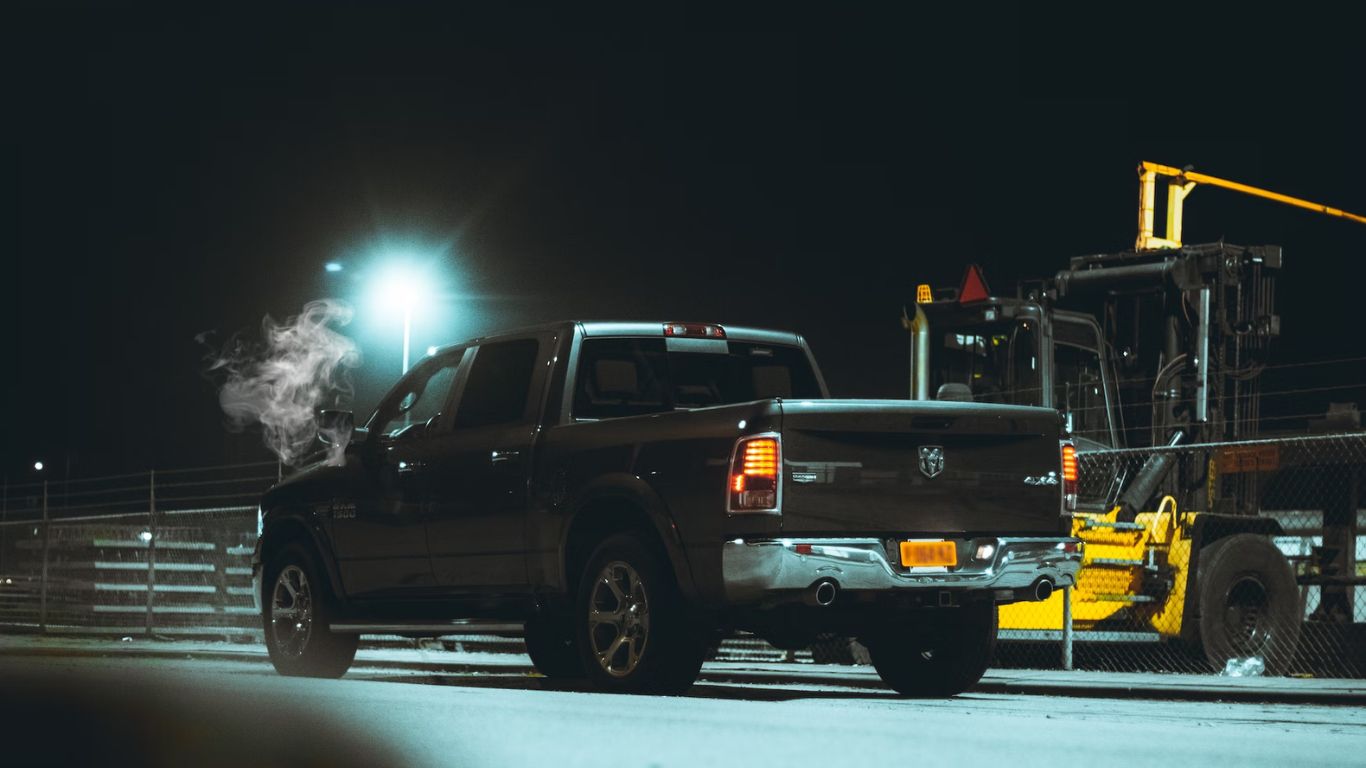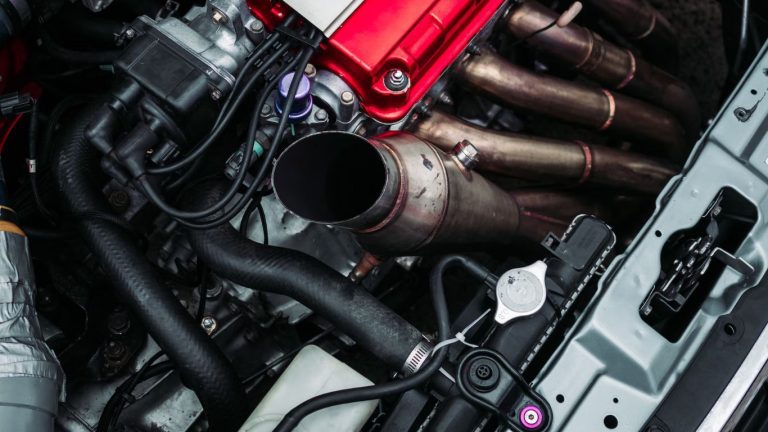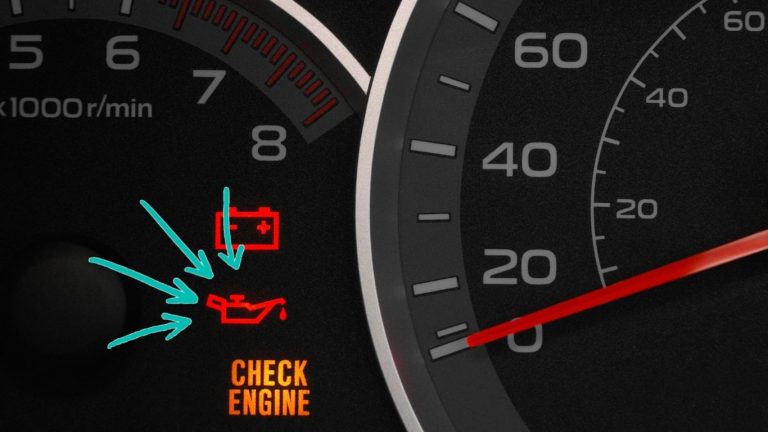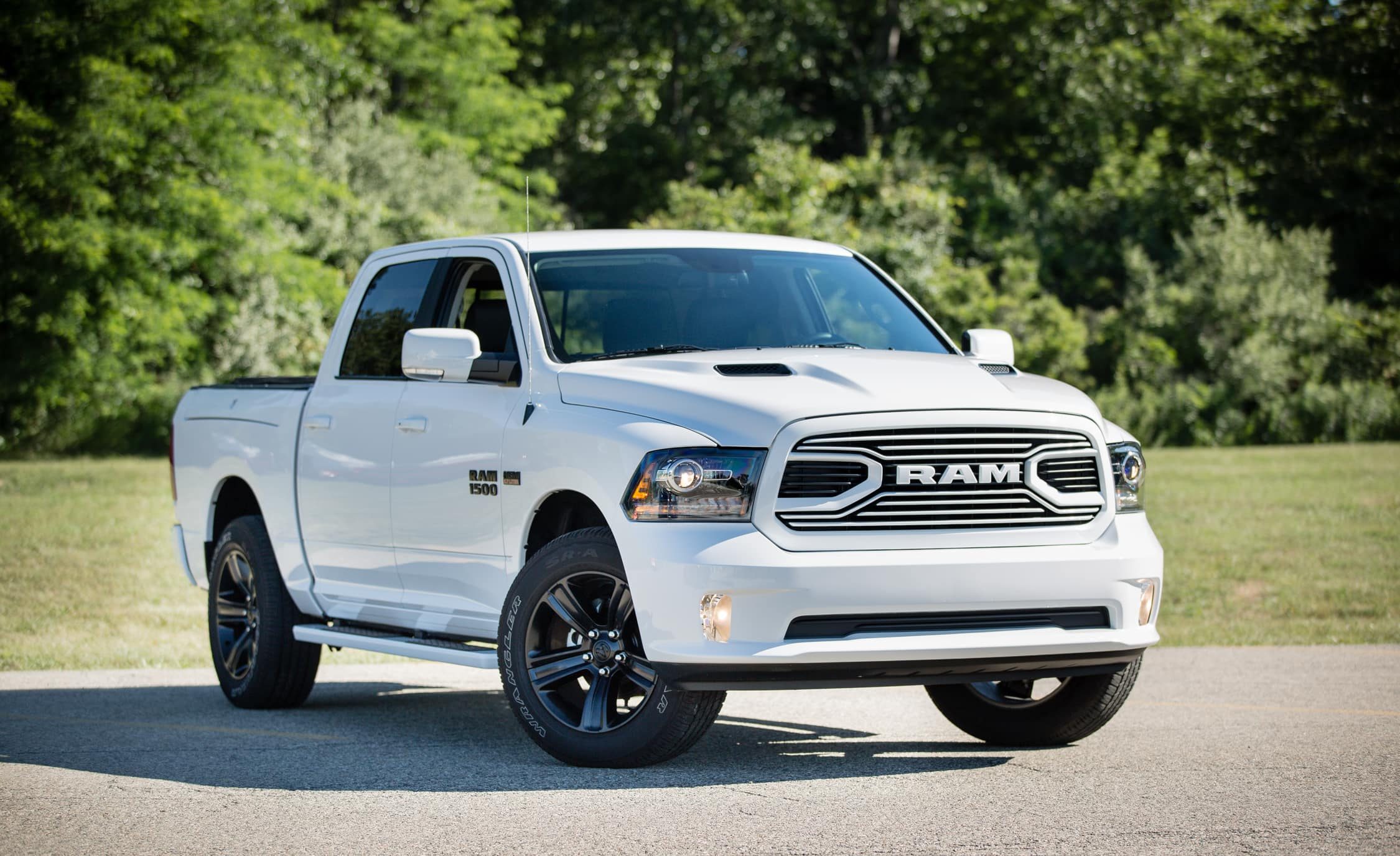8 Reasons Your Dodge Ram 1500 is Overheating [With Fixes]
“Why is my Dodge Ram 1500 overheating?” has this question? Keep reading to learn more.
Dodge Ram 1500 overheating can be caused by many issues, such as coolant leaks, a faulty thermostat, low oil, and more.
As an experienced mechanic who has worked on countless Dodge Ram 1500s, I can tell you that overheating is a common problem among these trucks.
The frustration of watching your temperature gauge inch its way into the red zone, only to have your engine shut down, is a feeling all too familiar to many Ram 1500 owners. But what causes a Dodge Ram 1500 to overheat in the first place?
In this blog post, I’ll dive into the most common causes of overheating in the Dodge Ram 1500 and share some tips and tricks for fixing the problem.
So, if you’re tired of dealing with an overheating engine, let’s get started and find out how to fix the problem once and for all!
The 8 most common causes for Ram 1500 to overheat with a guide to fix it
Cause #1: Coolant leak or low coolant levels
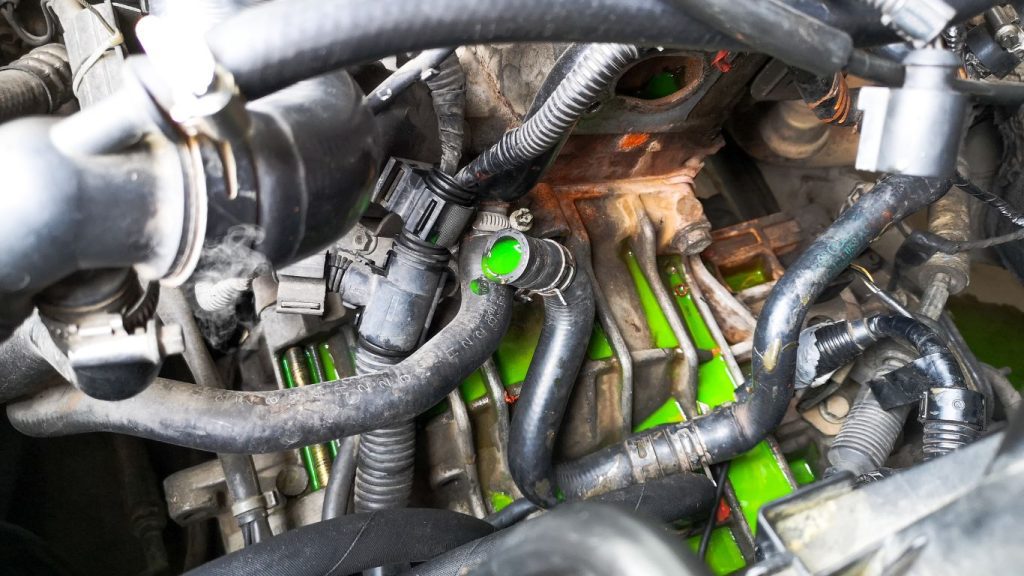
One of the most common causes of overheating in the Dodge Ram 1500 is a coolant leak or low coolant levels. The engine needs a specific coolant quantity to maintain a stable operating temperature. A leak in the coolant system or low coolant levels can cause the engine to overheat.
Coolant leaks can occur in various locations, such as the water pump, radiator, hoses, or head gasket.
To check for coolant leaks, you can visually inspect the entire coolant system for any signs of leakage, such as puddles of coolant or discolored areas on the hoses or other parts.
You can also use a pressure tester to check for leaks in the system. If a leak is found, it is important to have it repaired immediately.
To properly refill the coolant, you should first ensure the engine is cool and then locate the coolant reservoir, which is usually located near the engine.
Check the level of the coolant in the reservoir and add a 50/50 mix of coolant and water as needed.
It is vital to not overfill the reservoir as this can cause issues with the cooling system. It’s also advisable to check your vehicle manual for the specific type of coolant suggested by the manufacturer.
Cause #2: Broken radiator fan
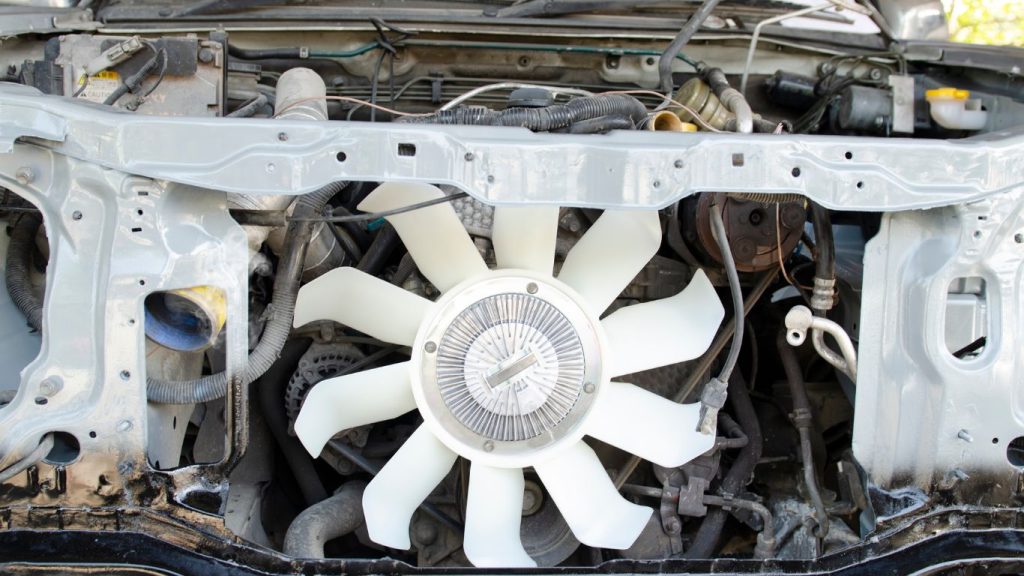
A broken Radiator Fan is another common reason a Dodge Ram 1500 may overheat. The radiator fan is responsible for blowing air over the radiator to help dissipate heat from the coolant.
If the fan is not working properly, the coolant will not be able to dissipate heat properly, causing the engine to overheat.
You can start the engine and observe the fan while running to check if the radiator fan is working properly. The fan should be spinning at a consistent speed and should not make any unusual noises.
If the fan is not working or makes strange noises, it may need to be replaced.
To replace the radiator fan, you will need to remove the fan shroud and disconnect the electrical connections to the fan. Once the fan is disconnected, you can remove it from the radiator and replace it with a new one.
When installing the new fan, ensure it is properly aligned and securely fastened. Once the fan is installed, you can reconnect the electrical connections and test it to ensure it is working properly.
In addition, you can also check for any other related parts, like a faulty relay or switch, that may cause the fan to malfunction. You will also want to keep an eye on the working of the radiator fan to prevent any damage to the engine and other parts of the vehicle. [Also read: top recommendation for 5.7L Ram Headers ]
Cause #3: Failing water pump
A failing water pump can be a major cause of engine overheating in a Dodge Ram 1500. The water pump’s main function is to circulate coolant throughout the engine and radiator to keep the engine running at optimal temperature. If the water pump is not functioning properly, the coolant may not be able to circulate, resulting in overheating.
One way to check if the water pump is failing is to look for coolant leaks around the pump. Another way to check is to visually inspect the pump for any signs of wear or damage, such as a loose or broken impeller. If the water pump is found faulty, it will need to be replaced.
Replacing a water pump can be more involved than other repairs. Still, it can be done with basic mechanical knowledge and the right tools.
The first step is to drain the coolant and remove the old pump. Then, the new pump is installed, and the coolant is refilled and bled from the system.
It’s also a good idea to check other components in the cooling system, such as the thermostat, hoses, and radiator, as they may also need to be replaced if they show signs of wear or damage.
With the right steps, a failing water pump can be quickly and easily replaced, preventing engine overheating and prolonging the life of your Dodge Ram 1500.
Cause #4: Low Oil
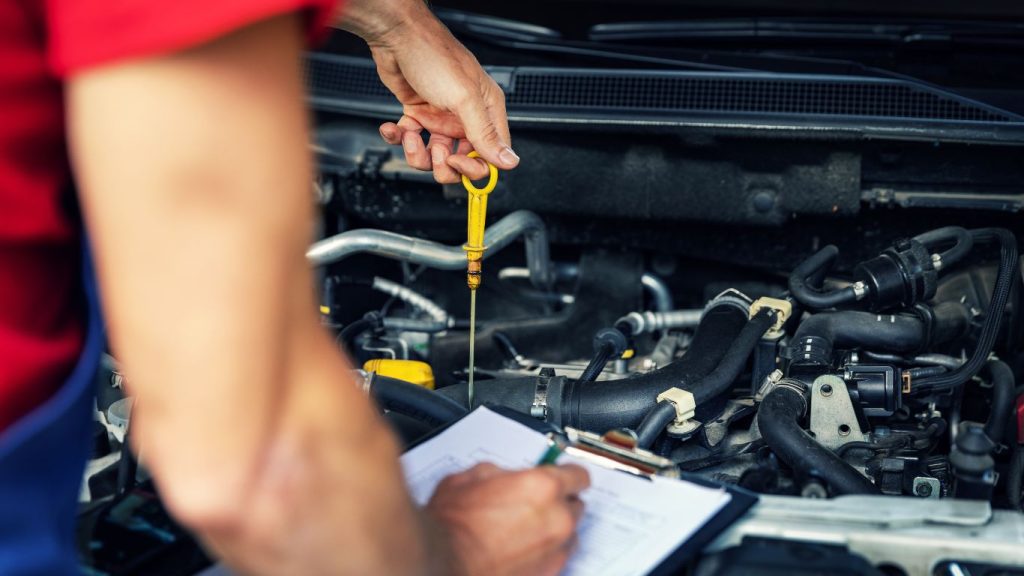
Low oil levels can cause the engine to overheat because oil is responsible for lubricating the engine’s internal parts, including the bearings and moving parts.
When oil levels are low, these parts can start to grind against each other and cause friction, which generates heat. This extra heat can cause the engine to overheat.
Locate the dipstick under the hood to check oil levels and pull it out. Clean the dipstick, reinsert it, and then pull it out to check the oil level. If the oil level is low, add oil to the engine until it reaches the full mark on the dipstick.
Ensure you use the correct oil viscosity and grade as specified in the owner’s manual. It’s also important to check the oil level regularly, as well as the color and consistency of the oil, as dirty or dark oil can indicate an issue with the engine. It’s also possible that your truck is burning oil. Read here everything you need to know about Ram 1500 oil burning.
Cause #5: Faulty thermostat
The thermostat is a valve that opens and closes to allow the coolant flow to circulate through the engine and the radiator. A faulty thermostat can cause a Dodge Ram 1500 to overheat, as it is responsible for regulating the temperature of the engine coolant.
When the thermostat fails, it can become stuck in the closed position, preventing the coolant from flowing through the engine and causing it to overheat.
To check if the thermostat is faulty, you can use a thermometer to measure the temperature of the coolant as it leaves the engine.
If the temperature is not within the normal range, it is likely that the thermostat is faulty and needs to be replaced.
To replace the thermostat, it is recommended to consult the vehicle’s repair manual for instructions and to have it done by a professional mechanic.
The thermostat is located in the engine compartment and is connected to the engine with a hose, it is a simple process, but it is important to follow the instruction properly to avoid damage to the engine.
Cause #6: Air in the cooling system
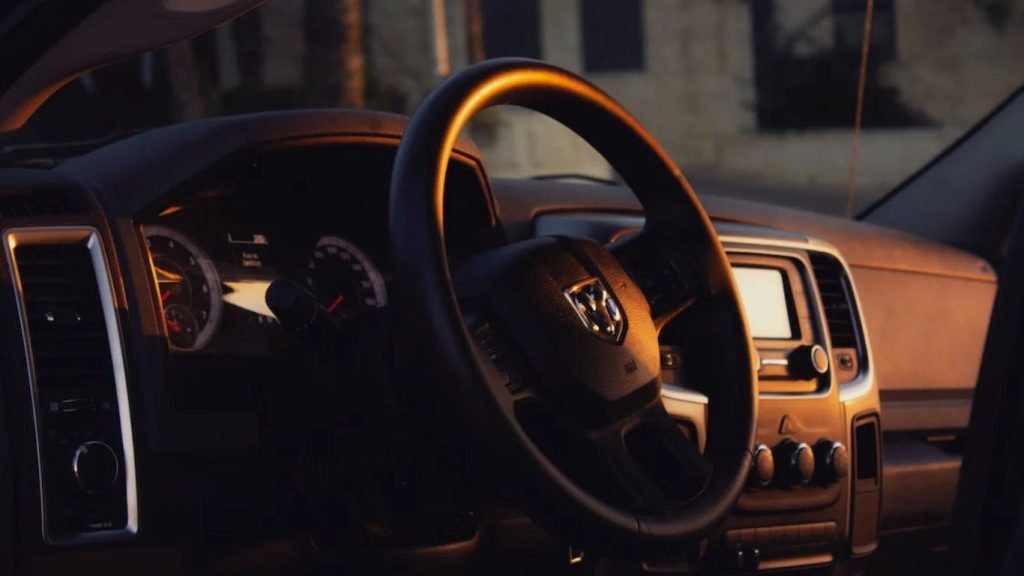
A not-so-common cause of engine overheating in the Dodge Ram 1500 is air trapped in the cooling system.
Air can become trapped in the system for several reasons, such as a coolant leak or a recent replacement.
When air is present in the cooling system, it can prevent the coolant from flowing properly, leading to overheating. To fix this issue, it is necessary to properly bleed the cooling system.
To bleed the cooling system, first, make sure the engine is cool. Next, locate the bleeder valve, typically found on the top or side of the engine block or the radiator hose.
Open the valve and allow any trapped air to escape until coolant begins to flow out. Once the coolant is flowing, close the valve and check for leaks.
Repeat this process as necessary. If you need more clarification about the location of the bleeder valve, you can refer to the vehicle owner’s manual or consult a professional mechanic.
It is also important to check the coolant level periodically, and refill the system if needed, to ensure the system is always functioning properly.
Cause #7: Blocked radiator
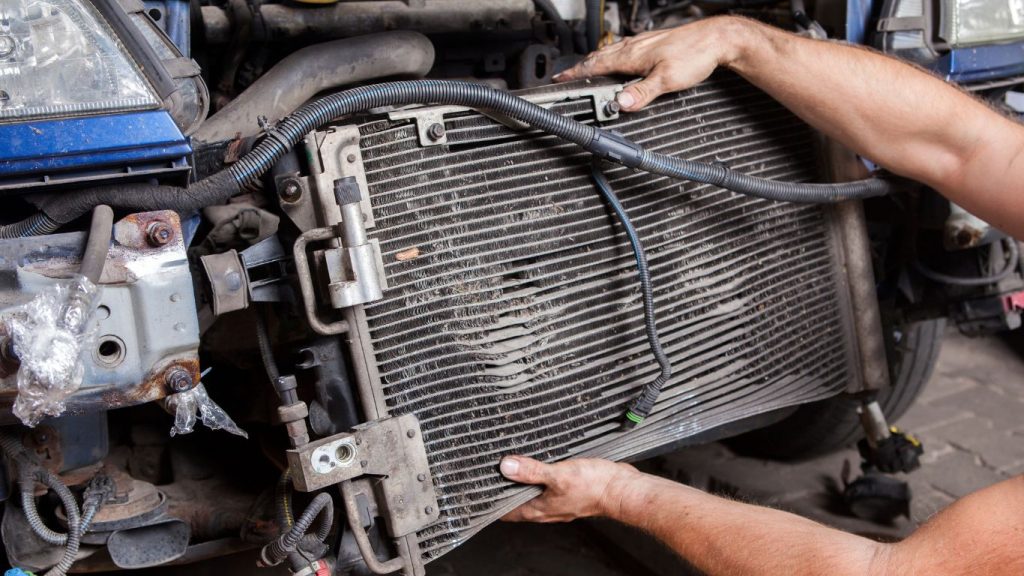
A blocked radiator can very well cause overheating in Dodge Ram 1500s. As we discussed earlier, the radiator dissipates heat from the engine coolant. If it becomes blocked, it cannot perform this function properly.
This can cause the coolant to become overheated, leading to engine overheating. A blocked radiator can occur due to a buildup of debris, such as leaves and dirt, or from corrosion.
To check for a blocked radiator, you can visually inspect the radiator for any buildup of debris or corrosion.
You can also use a radiator flush solution to help loosen and remove any buildup. If the blockage is severe, you may need to remove the radiator and have it professionally cleaned or replaced.
It’s also recommended to check the hoses that lead to and from the radiator, as they can also become blocked. If a blockage is found, it is important to address it immediately to prevent further damage to the engine.
Cause #8: Radiator cap not holding pressure
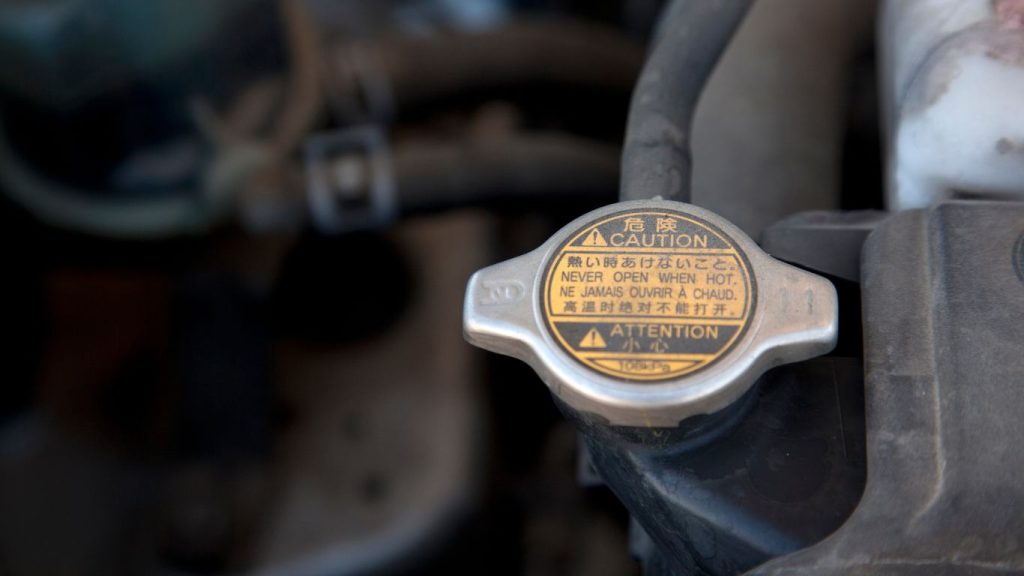
A defective radiator cap can cause engine overheating in several ways. One way is that it may not hold in pressure and allow the coolant to vent or escape the cooling system.
This can cause the engine to overheat as the coolant level drops, and it cannot regulate its temperature properly. Additionally, a defective radiator cap may not provide the proper pressure and not raise the boiling point of the coolant, causing the engine to overheat.
To check if your radiator cap is working properly, you can inspect it for any visible damage or leaks. You can also use a pressure tester to check if it’s holding the correct pressure. If the radiator cap is defective, it should be replaced immediately to prevent further engine overheating. Experiencing an acceleration problem? This guide will come in handy to fix your Ram 1500 acceleration troubles.
Over to you!
In conclusion, there are many reasons why a Dodge Ram 1500 may overheat. Still, by understanding the most common causes, you can take steps to prevent it from happening or fix the problem quickly if it does. There are solutions to keep your engine running smoothly, whether it’s a coolant leak, a broken radiator fan, a failing water pump, low oil levels, a faulty thermostat, or a radiator cap not holding pressure.
I hope this article helped you identify and troubleshoot the potential causes of overheating in your Dodge Ram 1500. If you’re still not able to get around it, please consult with a qualified mechanic or read our other blog posts for more information.
And as always, remember to always be proactive in maintaining your vehicle to avoid costly repairs and ensure a safe and reliable ride.

